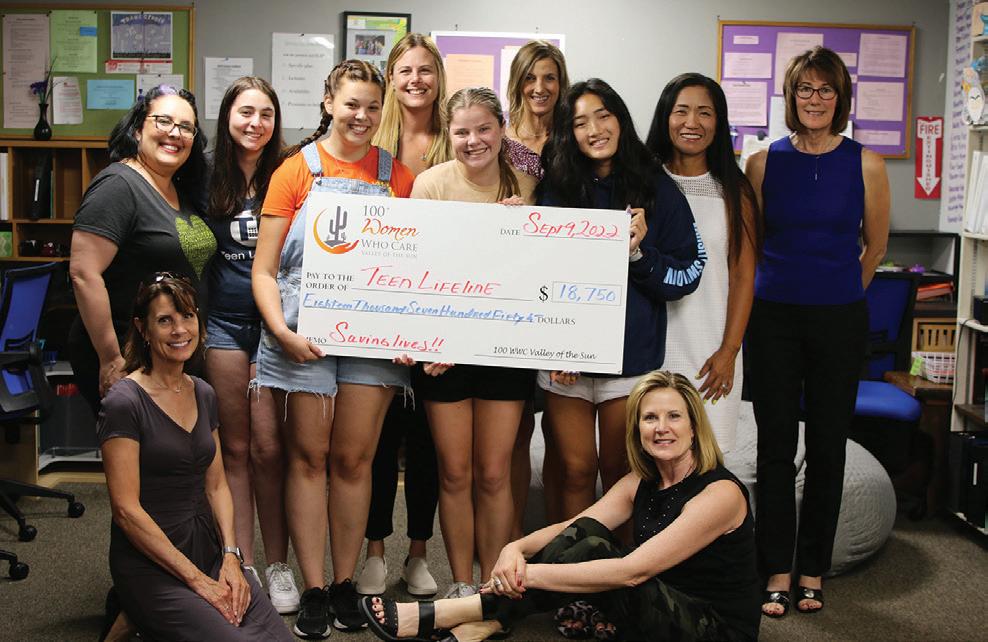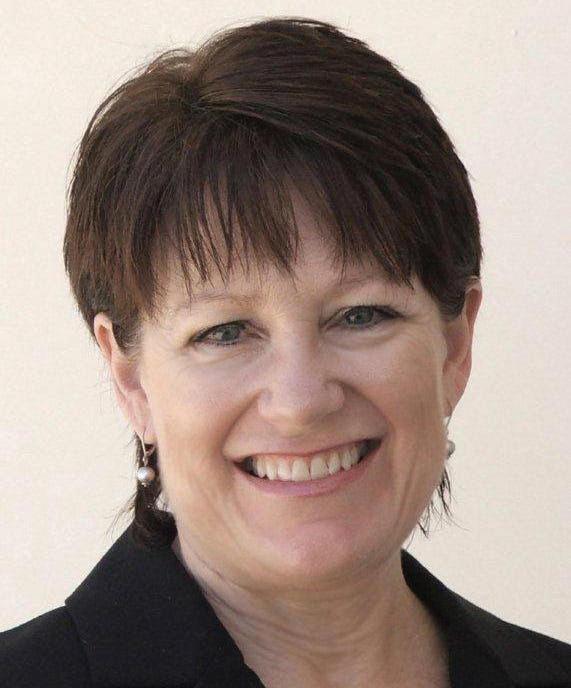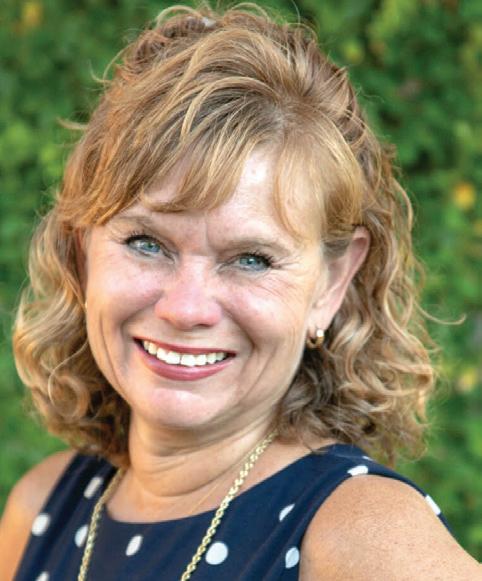
5 minute read
NEIGHBORS
Scottsdale.org l @ScottsdaleProgress /ScottsdaleProgress
100+ Women Who Care help out Teen Lifeline
BY ANGELA SIMS
Progress Contributor
There were 49 deaths by suicide of children 17 and younger in Arizona in 2020. In Chandler, Arizona, four teens died by suicide at the end of the 2020-21 school year.
These are startling numbers. Of course, numbers cannot begin to convey the grief and devastation of each individual’s death by suicide and the lives impacted and forever changed.
When a teen dies by suicide, the tragedy ripples out and affects not only their immediate family and closest loved ones, but their entire community as well. Our hearts collectively break over the loss of a young life. It is common to wish something had been done differently; to wonder what support could have been provided to help the struggling teen face another day and �ind hope in their present and future.
September is Suicide Prevention Awareness Month; a time to publicly acknowledge the prevalence of suicide and to raise awareness of this often dif�icult subject. The National Alliance on Mental Illness (NAMI) states, “We use this month to shift public perception, spread hope, and share vital information to people affected by suicide.” Awareness and education are vital to providing the support teens need when they are in crisis.
The Mayo Clinic lists the following warning signs that a teen may be suicidal: talking or writing about suicide; withdrawing from social contact; increasing use of alcohol or drugs; feeling trapped or hopeless; doing risky or self-destructive things; and changes in their normal routine, including eating or sleeping patterns.
What should you do if you suspect a teen might be thinking of suicide? Talk to him or her immediately. Don’t be afraid to use the word “suicide”. Talking about suicide won’t plant ideas in their head. In addition, seek medical help and mental health crisis support if they exhibit many of these behaviors or make comments about feeling suicidal.
Since 1986, Teen Lifeline, a local nonpro�it, has �illed the call to provide support and hope to teens who are struggling with their sole focus of preventing teen suicide in Arizona. There are three primary ways they provide this support: a 24-hour, free and con�idential hotline; education and outreach to Arizona schools and youth organizations; and life skills training to youth who want to learn how to support their peers.
The primary program that makes Teen Lifeline stand apart from other organizations working to prevent suicide is their crisis hotline staffed by teen volunteers. During adolescence, teens increasingly begin to turn to their peers for support. Having another teen at the other end of the line (or text conversation) can foster communication and conversation that a struggling teen may �ind dif�icult to share with adults in their lives. Teen volunteers receive extensive training and on-site, real-time support from mental health professionals as they interact with teens calling and texting Teen Lifeline for support. In 2021, the hotline received 42,014 calls and texts. Since 1986, Teen Lifeline volunteers have answered more than 315,000 calls and texts.
Teen Lifeline literally saves lives every day, with one in three calls being from a young person considering suicide. 94 percent of callers reported feeling better after calling the crisis hotline.
The impact of their outreach in schools and community programs is also impressive, with 97 percent of students demonstrating a willingness to tell an adult about a peer’s thoughts of suicide, 85 percent demonstrating willingness to use help seeking behaviors, and 98 percent of all participants demonstrating knowledge of suicide prevention information. It is �itting that Teen Lifeline was this quarter’s recipient of a donation from the Scottsdale members of 100+ Women Who Care Valley of the Sun. 100+ Women Who Care is a group of women who come together four times a year to select a local charity to support with their donations.
Each quarter, three charities are presented and the 100+ members vote on which of the three will receive a donation of $100 from each of its members. Teen Lifeline was selected in August and received a donation of $18,750.
Upon receiving the donation, Nikki Kontz, Clinical Director of Teen Lifeline, stated, “This donation is going to save lives. It’s so impactful the fact that a group of women came together and felt the lives of Arizona teens needed support and help.”
She continued, “This donation will go directly to programs that save lives. This donation impacts not just the callers and texters, but the people behind the scenes who love them, their families, parents, and schools. Imagine the ripple effect of this donation and the many lives being saved.”
Teen Lifeline provides services across Arizona. They are physically located in Maricopa County, with 85 percent of their services being provided in the Phoenix Metro Area. Teen Lifeline can be reached by phone or text, 24 hours a day, 365 days a year, at 602-248-8836. 100+ Women Who Care Valley of the Sun will hold their next quarterly giving in North Scottsdale 6:30-7:30 p.m. Oct. 26 at the HomeSmart Corporate Of�ice. Members and guests are welcome. Visit 100wwcvalleyofthesun.org for more information or to register.
Celebrating the check presentation to Teen Lifeline are, from left: Top row: Nikki Kontz, Stephanie Millner, Libby Murphy, Chien-Hue Edwards, Julie Krause, and teen volunteers; Front: Annette Bingaman and Kim Tarnopolski. (Courtesy 100+ Women Who Care.
NANCY BARTO
16 YEARS IN THE STATE SENATE CHRISTINE MARSH


- 30 YEARENGLISH TEACHER & 2016 AZ TEACHER OFTHE YEAR - ENDORSED BY FIREFIGHTERS - 2 YEARS IN AZ SENATE
ABORTION
Barto has sponsored Arizona’s most extreme abortion ban laws, and agrees with bans that have no exceptions for rape and incest. (1)
ECONOMY ABORTION
Marsh has been very public about protecting women’s access to the healthcare they need and will work to keep the government out of the decisions made between a woman and her doctor.
ECONOMY
In tough economic times, Barto has cost Arizona taxpayers tens of millions. Between her extreme laws getting the state sued (and the state subsequently losing) and her willingness to spend $9.4 million for a “Cyber Ninja” 2020 election audit, Arizona can’t afford Barto. (2) GUNS IN SCHOOLS
Barto supports gun sales without any background checks (3) and has voted to allow adults to carry fully-loaded guns while around children at school. (4)
1) KSTAR 6/25/22, SB 1164 2022; 2)https://www.forbes.com/sites/nicholasreimann/2021/09/24/arizona-audit-cost-trump-supporters-nearly-6-million-only-to-assert-biden-won-by-even-more/?sh=4d0a48892410 3) HB1243; 4) HB 2693 Christine Marsh has worked hard to support Arizona’s economy during this tough time, has supported key investments in Arizona’s infrastructure, and has worked to get our schools the funding they need. She even brought Republicans and Democrats together to fight illegal fentanyl which has torn apart too many Arizona families. (1)
GUNS IN SCHOOLS
As a mother of a police officer, Marsh supports all measures that will keep our children safe – including prohibiting adults (except for trusted School Resource Officers) from having loaded guns on or near school property.
1)https://kjzz.org/content/1688246/arizona-state-sen-christine-marsh-praises-passage-fentanyl-testing-bill




